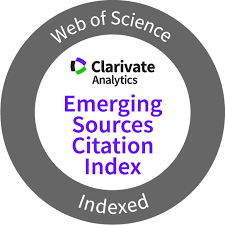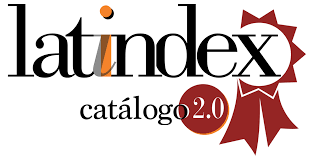The challenges of the strategic communication of the Portuguese public universities in the internationalization processes / Los desafíos de la comunicación estratégica en los procesos de internacionalización de las universidades públicas portuguesas
DOI:
https://doi.org/10.5783/revrrpp.v9i18.619Palabras clave:
internacionalización de la educación superior, movilidad académica, reclutamiento de estudiantes, relaciones públicas, comunicación estratégica, reputaciónResumen
AbstractThe main goal of this article is to drive organisations’ communications managers to pay more attention to internationalisation processes at higher education institutions (HEIs) and uncover new opportunities for action focused on academic mobility. From a theoretical viewpoint, there is a discussion on the phenomenon of internationalisation Portuguese HEIs and the strategic relevance of recruiting international students are put into context, with a reflection on how communication can improve that process provided it is duly integrated into the institution’s management and mission. The complexity of the decision-making process is highlighted, along with factors that influence international students when they look for and choose a host country and institution. The conclusion is reached that students prioritise reputation when choosing the country and the institution, which reflects a great opportunity for the public relations as a strategic management function of organization image and reputation.
Keywords: Internationalisation of higher education, academic mobility, recruitment of students, public relations, strategic communication, reputation
Resumen
El objetivo principal de este artículo es provocar en los responsables de la comunicación una mayor atención a los procesos de internacionalización de las Instituciones de Educación Superior (IES), con respecto a su dimensión institucional, y revelar posibles oportunidades de acción, especialmente en relación con la movilidad académica. Desde una perspectiva teórica, ha sido posible debatir sobre el fenómeno de la internacionalización, contextualizar las IES portuguesas y la planificación estratégica que han dirigido para el reclutamiento de estudiantes internacionales, y discutir cómo la comunicación puede optimizar este proceso, siempre que esté debidamente integrada en la gestión y la misión de la institución con la internacionalización. Nos referimos a la complejidad del proceso de toma de decisiones y a los diversos factores que influyen en el estudiante internacional cuando debe buscar y elegir un país y una institución educativa. Finalmente, confirmamos que el estudiante prioriza la reputación tanto para la elección del país como de la institución, lo que resulta en una gran oportunidad para las Relaciones Públicas como una función estratégica a la hora de gestionar la imagen y la reputación de la organización.
Palabras clave: internacionalización de la educación superior, movilidad académica, reclutamiento de estudiantes, relaciones públicas, comunicación estratégica, reputación
Descargas
Citas
ALTBACH, P. (2015). The dilemmas of ranking. International higher education, 42 (online). https://doi.org/10.6017/ihe.2006.42.7878.
BARON, D. (2000). Business and its Environment. 3rd ed. NJ: Prentice Hall.
BOHM, A., DAVIS, D., MEARES, D., & PEARCE, D. (2002). The global student mobility 2025 report: Forecasts of the global demand for international education. IDP, Canberra, Australia. Accessed on 20 March 2019, available at: http://www.foresightfordevelopment.org/sobipro/download-file/46-333/54.
BRONN, P.S. (2007). Relationship outcomes as determinants of reputation. Corporate Communications: An international Journal, 12 (4), 376-393.
CARNEIRO, J., CAVALCANTI, M., & SILVA, J. (1997). Porter revisitado: análise crítica da tipologia estratégica do mestre. Revista de Administração Contemporânea, 1(3), 7-30. https://dx.doi.org/10.1590/S1415-65551997000300002.
CHILDRESS, L. K. (2009). Planning for Internationalization By Investing in Faculty. Journal of International & Global Studies, 1(1), 30–49.
FOMBRUN, C. (1996). Reputation: Realizing value from the corporate image. Boston: Harvard Business School Press.
FOMBRUN, C. & RIEL, C. (2004). Fame and Fortune: How successful companies build winning reputations. Upper Saddle River, NJ: Financial Times Prentice-Hall.
GONÇALVES, G. (2010). Introdução à Teoria das Relações Públicas. Porto, Portugal: Porto Editora.
GRUNIG, L. A., GRUNIG, J. E., & DOZIER, D. M. (2002). Excellent public relations and effective organizations: A study of communication management in three countries. Mahwah, NJ: Lawrence Erlbaum.
IAU – International Association of Universities (2018). IAU 5th global survey on internationalisation of higher education institutional questionnaire. Accessed on 18 March 2019, available at: https://www.iau-aiu.net/IMG/pdf/iau-5th-global-survey-questionnaire.pdf.
KIM, J.N., HUNG, C. J., YANG, S. & GRUNIG, J. (2013). A strategic management approach to reputation, relationships, and publics. In Carroll, C. The Handbook of Communication and Corporate Reputation (197-212). Chichester, West Sussex: John Wiley & Sons, Inc.
KNIGHT, J. (2002). Trade Talk: An Analysis of the Impact of Trade Liberalization and the General Agreement on Trade in Services on Higher Education. Journal of Studies in International Education, 6(3), 209-229.
KNIGHT, J. (2008). Higher education in turmoil. The changing world of internationalisation. Rotterdam, the Netherlands: Sense Publishers.
KNIGHT J. (2015a). Updated Definition of Internationalization. International Higher Education, 33 (online). Accessed on 18 March 2019, available at: https://ejournals.bc.edu/ojs/index.php/ihe/article/view/7391.
KNIGHT, J. (2015b). Five Myths about Internationalization. International Higher Education, 62 (online). https://doi.org/10.6017/ihe.2011.62.8532.
LI, M., & BRAY, M. (2007). Cross-border flows of students for higher education: Push–pull factors and motivations of mainland Chinese students in Hong Kong and Macau. Higher education, 53(6), 791-818. https://doi.org/10.1007/s10734-005-5423-3.
MACMILLAN, K., MONEY, K., DOWNING, S. & HILLENBRAND, C. (2005). Reputation in Relationships: Measuring Experiences, Emotions and Behaviors. Corporate Reputation Review, 8 (3), 214-32. https://doi.org/10.1057/palgrave.crr.1540251.
MAZZAROL, T., & SOUTAR, G. N. (2002). “Push-pull” factors influencing international student destination choice. International Journal of Educational Management, 16(2), 82–90. https://doi.org/10.1108/09513540210418403.
OECD (2018). Education at a Glance 2018: OECD Indicators, OECD Publishing, Paris. Accessed on 23 March 2019, available at: http://www.oecd.org/education/education-at-a-glance/.
PORTER, M. E. (2004). Estratégia competitiva: técnicas para análise de indústrias e da concorrência. 2. ed. Rio de Janeiro: Elsevier, 2004
RIES, A. & TROUT, J. (2002). Posicionamento: a batalha por sua mente. São Paulo: Makron Books.
SCHLAGER, T., BODDERAS, M., MAAS, P., & LUC CACHELIN, J. (2011). The influence of the employer brand on employee attitudes relevant for service branding: an empirical investigation. Journal of Services Marketing, 25(7), 497–508. Accessed on 18 March 2019, available at: https://www.emeraldinsight.com/doi/full/10.1108/08876041111173624.
SERRALVO, F. A., & FURRIER, M. T. (2004). Fundamentos do posicionamento de marcas: uma revisão teórica. In FEA/USP, Seminário em Administração 7 (1-11), São Paulo FEA/USP.
UNESCO (2015). Declaração de Incheon educação 2030: rumo a uma educação de qualidade inclusiva e equitativa e à educação ao longo da vida para todos. Accessed on 18 March 2019, available at: https://unesdoc.unesco.org/ark:/48223/pf0000243278_por.
VAN RIEL, C. B., & FOMBRUN, C. J. (2007). Essentials of corporate communication: Implementing practices for effective reputation management. London: Routledge.
WILKINS, S., & HUISMAN, J. (2011). Student recruitment at international branch campuses: can they compete in the global market? Journal of Studies in International Education, 15(3), 299-316. https://doi.org/10.1177/102831531038546.
Descargas
Archivos adicionales
Publicado
Cómo citar
Número
Sección
Licencia
Los autores que publican en esta revista están de acuerdo con los siguientes términos:- Los autores conservan los derechos de autor y garantizan a la revista el derecho de ser la primera publicación del trabajo al igual que licenciado bajo una Creative Commons Attribution License que permite a otros compartir el trabajo con un reconocimiento de la autoría del trabajo y la publicación inicial en esta revista.
- Los autores pueden establecer por separado acuerdos adicionales para la distribución no exclusiva de la versión de la obra publicada en la revista (por ejemplo, situarlo en un repositorio institucional o publicarlo en un libro), con un reconocimiento de su publicación inicial en esta revista.
- Se permite y se anima a los autores a difundir sus trabajos electrónicamente (por ejemplo, en repositorios institucionales o en su propio sitio web) antes y durante el proceso de envío, ya que puede dar lugar a intercambios productivos, así como a una citación más temprana y mayor de los trabajos publicados (Véase The Effect of Open Access) (en inglés).




